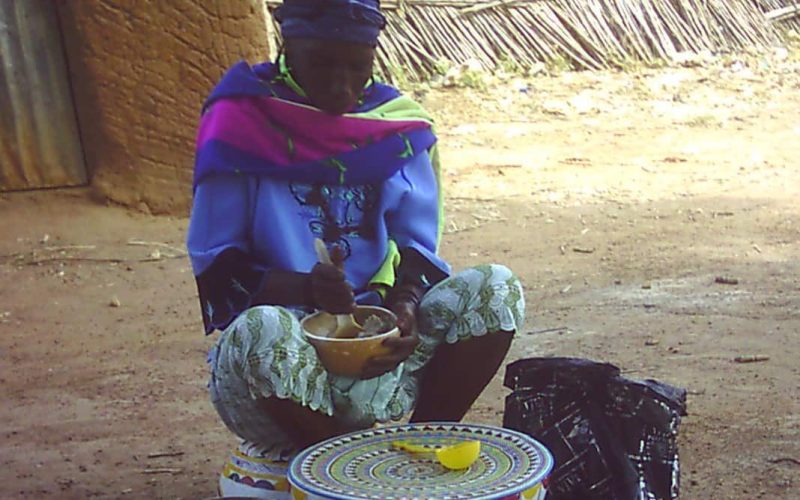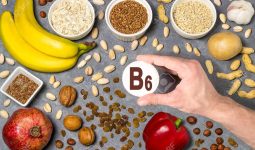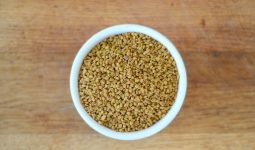If you have never heard about Fura da nono, then the chances are that you have never noticed the beautiful Fulani women who walk the streets of Nigeria bearing Calabashes.
Fura da nono is a tasty African cold gruel that is made mostly consumed in northern Nigeria. The meaning of the words Fura de nunu in English can be interpreted as milk and millet gruel.
Fura de Nunu, like most Nigerians, prefer to call it, or Fura da nono, as the Hausas call it is one of the healthiest and most satisfying food you can get from northern Nigeria. Nono or Nunu is a diary product ( it’s basically a local yogurt containing thick lumps that are produced from the fermentation of unrefined cow milk).
Nono is derived from the fermented cow milk after the milk has been separated from its lipid component called Man shanu (Cow oil).
The process of nono production is an art that makes a vital part of the many beautiful traditions the Fulani women have preserved for centuries; there will be no history of fura de nunu without these amazing women selling the tasty Nono, sometimes with little Fura balls, is one of the most common trades of most young Fulani women who hawk this unique beverage from place to place in calabashes often on hot afternoons.
Nutritional value of Fura de nunu
As a tasty, common, and healthy Nigerian food, Fura balls are made from ground millet, a gluten-free grain that contains lots of essential minerals and vitamins.
Another vital thing to know about Millet is that it is part of the body’s ecological foods because it acts as a probiotic that feeds good microflora in our collection.
Also, Millet flour, from which the Fura balls are made, contains essential nutrients such as Calcium, Magnesium, Manganese, Phosphorus, Tryptophan, B vitamins, Fiber, Antioxidants. The nunu yogurt (which is usually more than the first) is loaded with amazing vitamins and minerals that offer support to crucial physiological processes in the human body.
These vitamins and minerals include Vitamin B 12, Vitamin B 5, phosphorous, potassium, iodine, riboflavin, and zinc.
What are the Health Benefits of Fura De Nunu?
- Millet can help with the reduction of headaches and migraines, high blood pressure, and heart attacks because of the presence of magnesium.
- Millet helps with weight maintenance as it promotes fat metabolism, helps to repair body tissue, and keeps the body energized due to the presence of phosphorus in the plant.
- Millet helps to lower the level of cholesterol in the body (Vitamin B3).
- Millet helps to reduce the risk of suffering from type 2 diabetes.
- Eating millets is a great way to protect yourself against breast cancer and also protect yourself against childhood asthma.
- Nunu Yogurt is excellent for people who work out as it has got power-boosting protein and calcium for healthy bone-building.
- Unadulterated yogurt-like fresh nono can give you that flat abs you’ve been trying to get. Per research carried out by the University of Tennessee, Knoxville.
- Fura de nunu has an alkaline nature that helps with the promotion of food digestion and also prevents constipation.
- Nono Yogurt is a great probiotic which helps feed the good bacteria in our bodies, and eliminate harmful microorganisms that can lead to intestinal infections
- Nono is excellent for people dealing with insomnia as it causes the production of serotonin (a sleep agent) to help you relax and soothe your moods. It also keeps you hydrated.
Hygiene and Fura: Side effects of Fura de Nunu
Asides the impact it may have on people who are lactose intolerant, the Fura da nono has no known side effect at present.
However, hygiene is an issue to be considered when it comes to Fura da nono. It is widespread for people to come down with a running stomach or at worse typhoid fever after consuming a cup of fura de nono that is un-hygienically prepared and has been contaminated by Salmonella .
Other dangerous microorganisms like Campylobacter and Escherichia coli can also infect the nono drink during the milking process. One of the most common sources of nono contamination comes from feces.
We hope that you found this article of help. Please leave a comment below.







